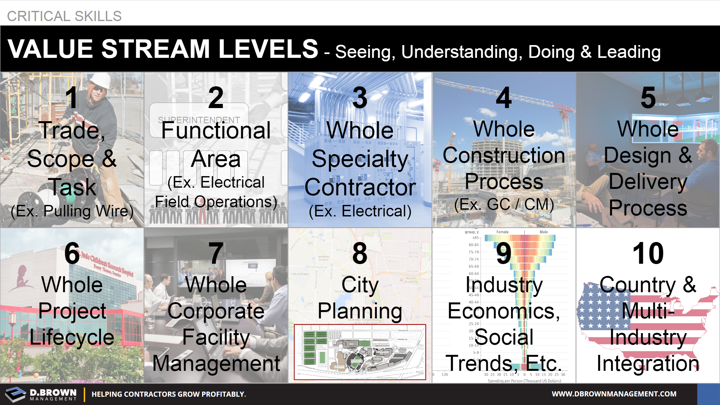Consider these 10 levels of granularity when looking at the construction value stream:
SPECIALTY CONTRACTOR
- Specific Trade Scope & Task (Field Installation Expertise)
- Functional Area of Specialty Contractor (Precon, Detailing, Prefab, etc.)
- Whole Specialty Contracting Business (Electrical, Mechanical, etc.)
PROJECT OWNER
- Construction Process (GC / CM Viewpoint)
- Design & Project Delivery Process
- Project Lifecycle (From Concept Through Initial Construction, Operation, Renovations & Decommissioning)
- Corporate Facility Management (Interrelationships of Business Strategy & Multiple Project Lifecycles)
BEYOND
- City Planning (Redevelopment Vision, Supporting Infrastructure, etc.)
- Industry Trends (Example - Demographics Driving Healthcare Capacity Needs)
- Country & Multi-Industry Integration (Example - Growing Geographies, Integration of Housing & Healthcare)
What level of the value stream is your primary focus?
Deeply learn the value streams and build relationships 1 & 2 levels higher.
What can you do to add maximum value considering the perspective from those higher levels?

